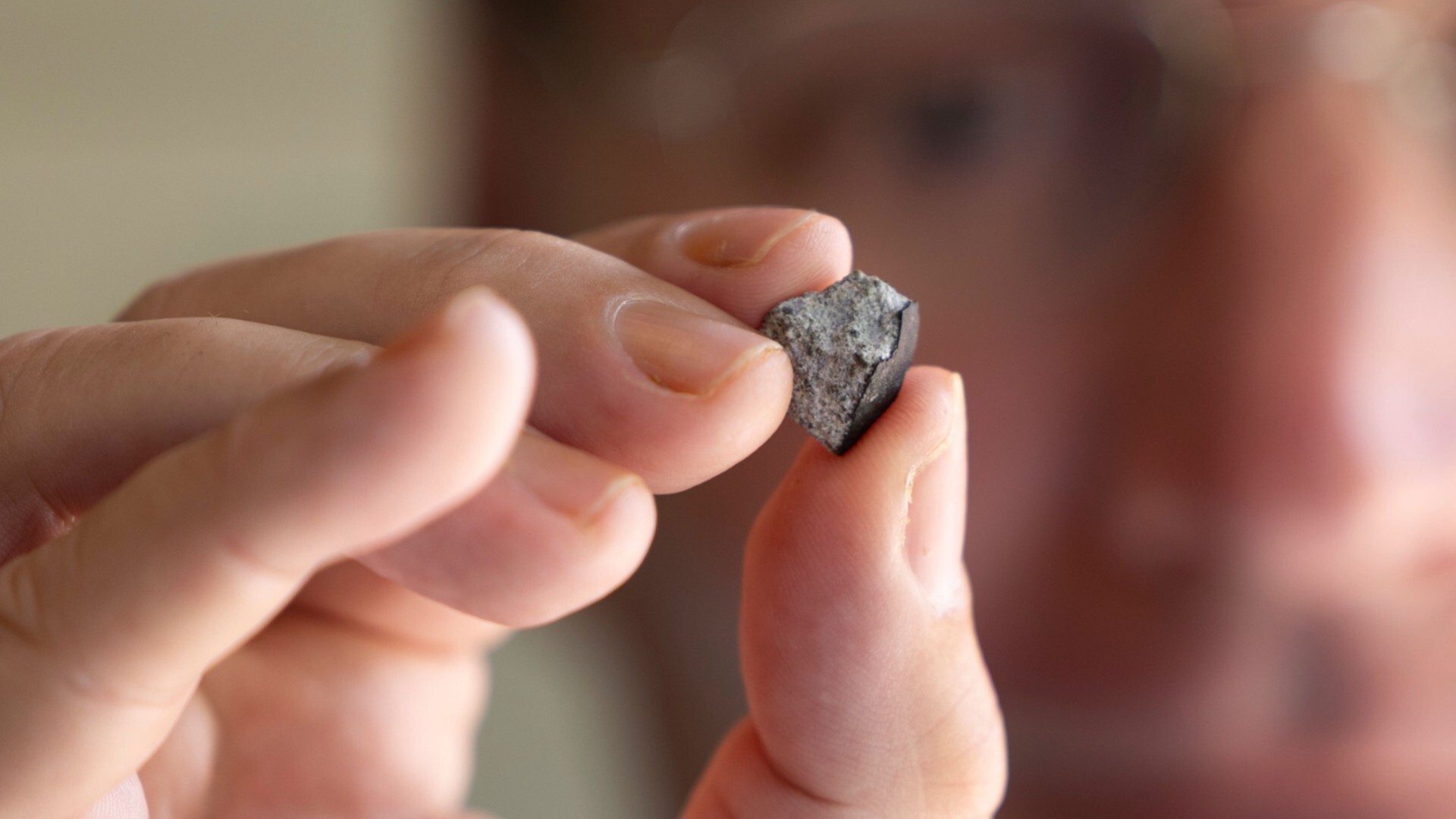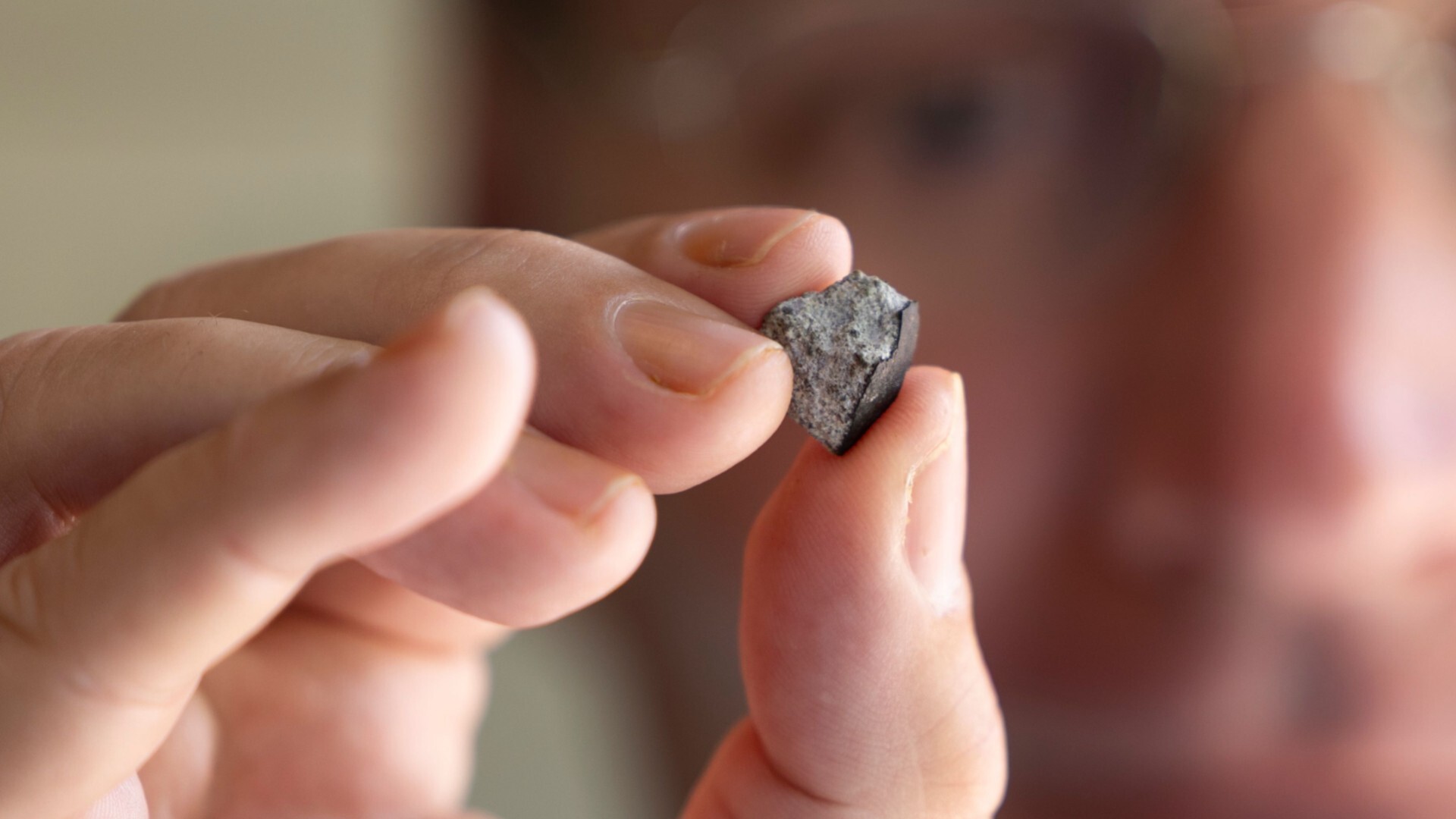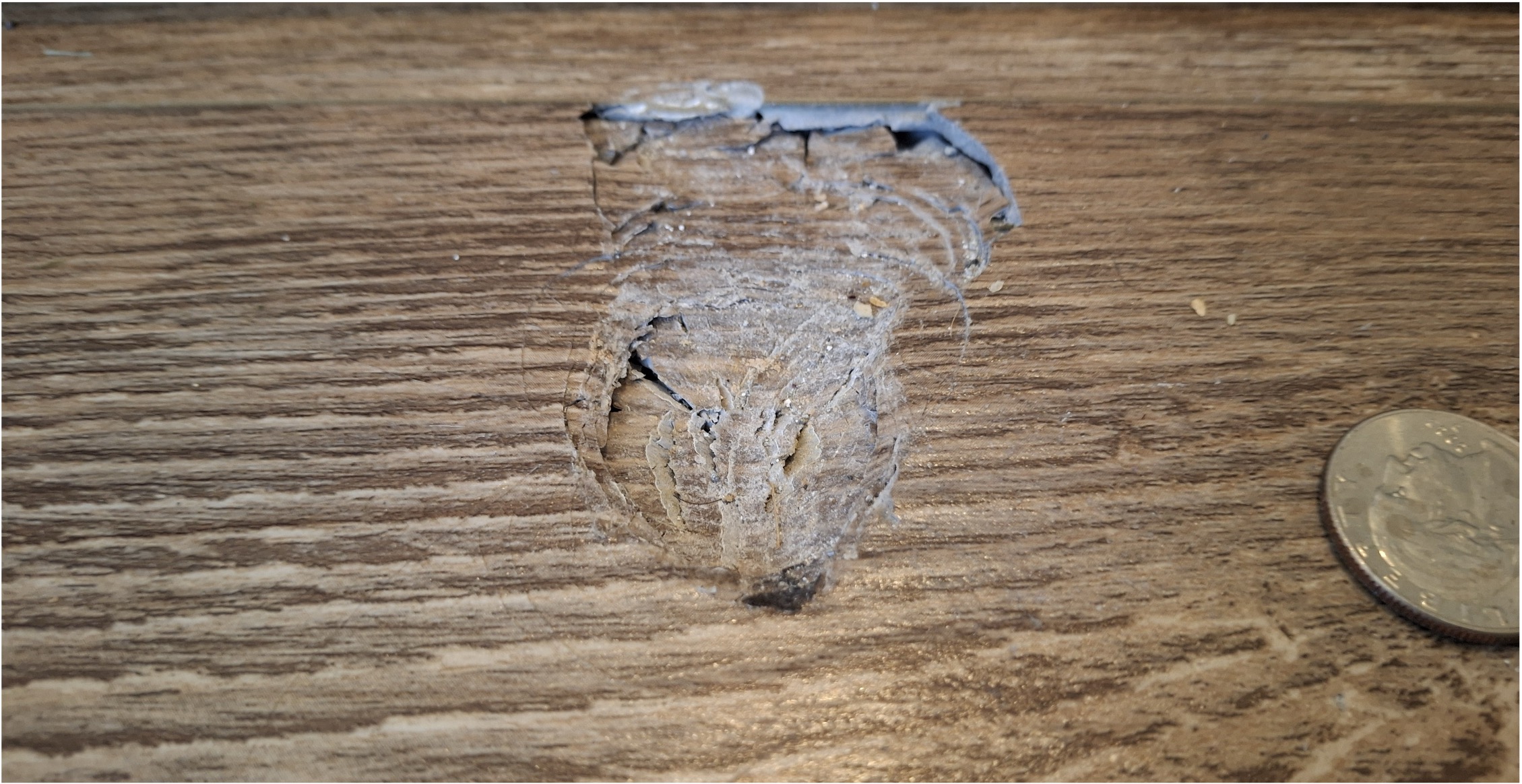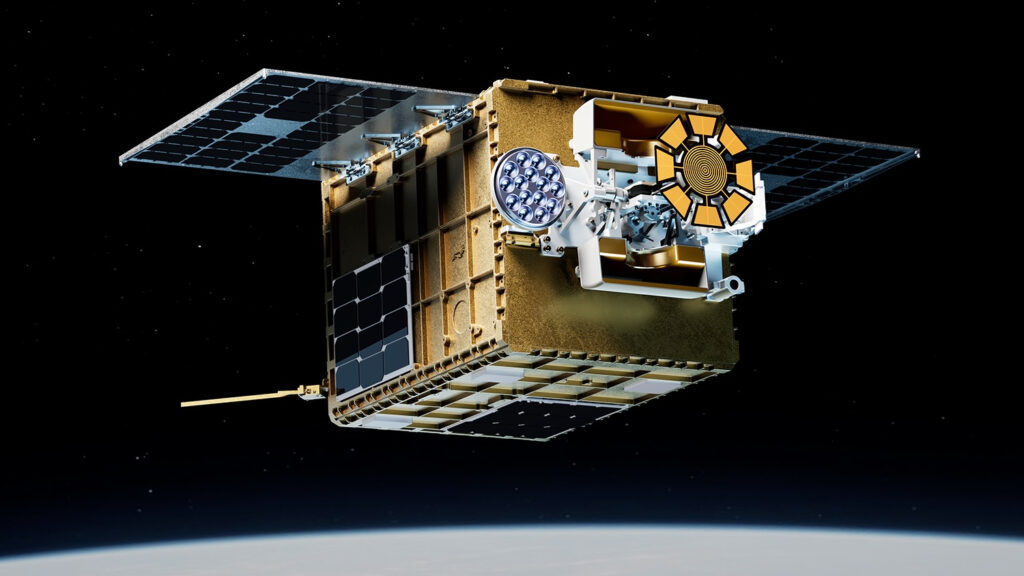Now Reading: Meteorite that punched a hole through Georgia roof may be older than Earth itself
-
01
Meteorite that punched a hole through Georgia roof may be older than Earth itself
Meteorite that punched a hole through Georgia roof may be older than Earth itself


A meteorite that survived atmospheric entry and smashed through the roof of a Georgia home earlier this year may have formed before Earth itself, according to a scientist from the University of Georgia who analyzed fragments of the wandering solar system object.
Residents of several southeastern U.S. states were dazzled on Jul. 26 when they witnessed a rare daytime fireball — bright enough to be registered by an orbiting satellite — blazing Earthward.
The ancient asteroid shard at the heart of the event weathered the intense friction of atmospheric entry to punch a hole through the roof of a house in the city of McDonough, Georgia, shattering the floor a mere 14 feet (4 meters) from an unsuspecting resident.
How old is the McDonough Meteorite?
23-grams-worth of the fragmented meteorite — the name given to meteoroids that reach the ground intact — were later transported to the University of Georgia (UGA), where scientists set to work unravelling the secrets of its origins. “This particular meteor that entered the atmosphere has a long history before it made it to the ground of McDonough, and in order to totally understand that, we actually have to examine what the rock is and determine what group of asteroids it belongs to,” said UGA researcher Scott Harris.
The newly named McDonough Meteorite is thought to be a Low Metal (L) ordinary Chondrite — one of the most ancient forms of rock known to exist in the solar system — that likely formed some 4.56 billion years ago, potentially making it slightly older than Earth.

“It belongs to a group of asteroids in the main asteroid belt between Mars and Jupiter that we now think we can tie to a breakup of a much larger asteroid about 470 million years ago,” said Harris. That destructive event could have shunted the McDonough asteroid into an Earth-crossing orbit that would eventually see it partially redecorate one Henry County home.
Harris aims to publish a paper detailing the composition of the meteorite along with information about its atmospheric entry later this year. Shards of the McDonough Meteorite are also due to be displayed at the Tellus Science Museum in Cartersville, Georgia.
Stay Informed With the Latest & Most Important News
Previous Post
Next Post
-
 01Two Black Holes Observed Circling Each Other for the First Time
01Two Black Holes Observed Circling Each Other for the First Time -
 02From Polymerization-Enabled Folding and Assembly to Chemical Evolution: Key Processes for Emergence of Functional Polymers in the Origin of Life
02From Polymerization-Enabled Folding and Assembly to Chemical Evolution: Key Processes for Emergence of Functional Polymers in the Origin of Life -
 03Astronomy 101: From the Sun and Moon to Wormholes and Warp Drive, Key Theories, Discoveries, and Facts about the Universe (The Adams 101 Series)
03Astronomy 101: From the Sun and Moon to Wormholes and Warp Drive, Key Theories, Discoveries, and Facts about the Universe (The Adams 101 Series) -
 04True Anomaly hires former York Space executive as chief operating officer
04True Anomaly hires former York Space executive as chief operating officer -
 05Φsat-2 begins science phase for AI Earth images
05Φsat-2 begins science phase for AI Earth images -
 06Hurricane forecasters are losing 3 key satellites ahead of peak storm season − a meteorologist explains why it matters
06Hurricane forecasters are losing 3 key satellites ahead of peak storm season − a meteorologist explains why it matters -
 07Binary star systems are complex astronomical objects − a new AI approach could pin down their properties quickly
07Binary star systems are complex astronomical objects − a new AI approach could pin down their properties quickly




















